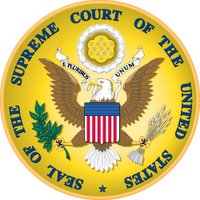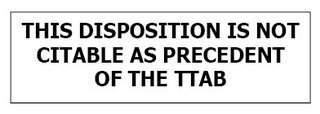Will the TTAB Make All Decisions Citable?
It is reported that last Wednesday, the Supreme Court adopted a rule change that will allow lawyers to cite "unpublished" opinions in federal court cases beginning in 2007. The new rule will take effect unless Congress countermands it before Dec. 1, 2006. [Law.com story here]. How will this ruling affect the TTAB, if at all?

At the Midwest IP Institute last fall, Chief Judge Sams briefly addressed this issue in response to an attendee's question. As I recall, Judge Sams said that such a ruling by the Court would not affect the TTAB directly because the Board is not an Article 3 court. However, he also said that such a ruling would be taken into consideration by the Board.
You may have noted that this year the Board has already issued 22 citable decisions (compared with 18 for all of last year, 7 of which came in November and December). The Board has obviously decided to increase the number of citables, and at this rate we may see 80 or more in 2006. But I doubt the Board will make all of its decisions citable. [Professor Thomas G. Field, Jr., of the Franklin Pierce Law Center has questioned whether the TTAB can and should deem decisions uncitable, in his article found here).] I believe the Board views many of the 600 or so cases in which it issues final decisions each year, as being too mundane to merit the citability tag; they simply add nothing of value to the Board's jurisprudence.
From a practical point of view, I suspect the Board feels that most of its decisions are so fact-based that they provide no useful precedent for other cases. When the Board encounters a particularly novel and interesting set of facts and/or when a new issue of law is decided, it will deem the decision citable. It follows the philosophy that it laid out in 1992:
Decisions are not published because, in virtually all cases, they do not add significantly to the body of existing law and/or they are not of widespread legal interest. By deciding that a decision will not be recommended for publication, the Board has in effect declared that the decision has no value as legal precedent. General Mills, Inc. v. Health Valley Foods, 24 USPQ2d 1270, 1275 (TTAB 1992).
When the Board decided in General Mills to no longer allow citation of "unpublished" decisions, one principal reason was that such decisions were not readily available to everyone. Currently, however, under the Freedom of Information Act the Board makes available all of its final decisions in ".pdf" form at the TTAB website. Does this online availability eliminate the Board's concern? I think so.
My own view is not greatly dissimilar from what I believe to be the Board's current view. Many cases handled by the Board -- and particularly many ex parte appeals -- are straightforward and ordinary, and seem to me to have little or no precedential value. I like the Board's decision to greatly increase the number of citable decisions, but I don't think it's necessary or desirable that all decisions be citable.

TTABlog note: I use the term "citable" rather than "published" in referring to precedential Board decisions. Use of the term "published" is confusing because the United States Patent Quarterly, for example, publishes not only the "citable" decision of the TTAB, but also an occasional uncitable decision. Thus "published" does not necessarily mean precedential.
Text Copyright John L. Welch 2006




0 Comments:
Post a Comment
<< Home